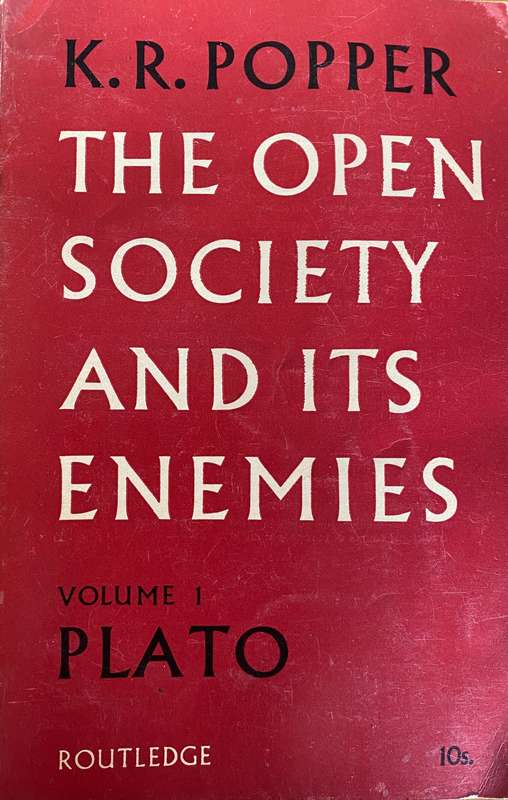The Open Society and its enemies, Volume One: The spell of Plato
Published by Routledge & Kegan Paul Plc, 1980, softcover, index, 360 pages, condition: very good.
Written in political exile during the Second World War and first published in 1945, Karl Popper's The Open Society and Its Enemies is one of the most influential books of the twentieth century. Hailed by Bertrand Russell as a 'vigorous and profound defence of democracy', its now legendary attack on the philosophies of Plato, Hegel and Marx exposed the dangers inherent in centrally planned political systems. Popper's highly accessible style, his erudite and lucid explanations of the thought of great philosophers and the recent resurgence of totalitarian regimes around the world are just three of the reasons for the enduring popularity ofThe Open Society and Its Enemies, and for why it demands to be read both today and in years to come.
This is the first of two volumes of The Open Society and Its Enemies.
Karl Popper was an AustrianBritish[5] philosopher, academic and social commentator. One of the 20th century's most influential philosophers of science, Popper is known for his rejection of the classical inductivist views on the scientific method in favour of empirical falsification. According to Popper, a theory in the empirical sciences can never be proven, but it can be falsified, meaning that it can (and should) be scrutinised with decisive experiments. Popper was opposed to the classical justificationist account of knowledge, which he replaced with critical rationalism, namely "the first non-justificational philosophy of criticism in the history of philosophy".
In political discourse, he is known for his vigorous defence of liberal democracy and the principles of social criticism that he believed made a flourishing open society possible. His political thought resides within the camp of Enlightenment rationalism and humanism. He was a dogged opponent of totalitarianism, nationalism, fascism, romanticism, collectivism, and other kinds of (in Poppers view) reactionary and irrational ideas, and identified modern liberal democracies as the best-to-date embodiment of an open society.

